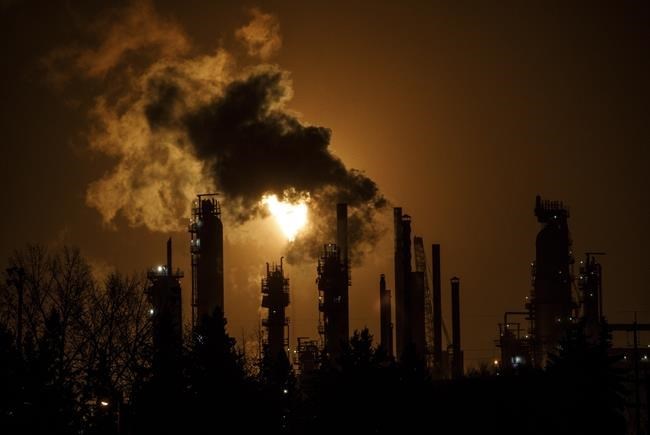CALGARY — Imperial Oil Ltd. CEO Brad Corson said Friday the federal government's strategy to reduce emissions and reach net-zero amounts to overreach from Ottawa.
"It is very aggressive and stretches the capability of what is technically and economically feasible," Corson said on a conference call with analysts.
Earlier this month, Ottawa released a statement outlining ways it could potentially design the oil and gas emissions cap, which is part of its 2030 emissions reduction plan, and launched consultations on the matter.
The first option is a cap-and-trade system under the Canadian Environmental Protection Act that sets regulated limits on emissions from the sector.
The second option would impose a steeper carbon price on the industry.
"We share the government’s objective to tackle climate change in a very proactive manner," Corson said, but stressed the need for balance between shielding the environment and maintaining oil supply.
"I believe we can achieve both objectives," he said, adding that there needs to be a collective effort between government and industry to get there.
Imperial has laid out goals to reduce its greenhouse gas intensity by 30 per cent by 2030 and reach net-zero in the company’s oilsands operations by 2050.
His comments come as the company recorded a meteoric rise in profit in its latest quarter amid soaring energy prices and higher production.
The Calgary-based company said its net income in the second quarter was $2.41 billion or $3.63 per share, more than six times higher than the $366 million or 50 cents per share it recorded in the same period of 2021.
Total revenue and other income in the three months ended June 30 amount to $17.31 billion, compared with $8.05 billion last year.
Imperial said its upstream production was 413,000 gross oil equivalent barrels per day, the highest second quarter in more than 30 years.
The company also announced a third quarter dividend of 34 cents per share.
Corson said the company's results were underpinned by an ongoing focus on safe and reliable operations and commodity price strength in a statement as part of the earnings release Friday.
The company also said its Kearl oilsands project's quarterly gross production averaged 224,000 barrels per day, reflecting a full recovery in operating performance from the impact of frigid temperatures experienced in the first quarter, as well as the completion of its annual planned turnaround.
Kearl production is expected to exceed 280,000 gross barrels per day over the second half of the year, the company said.
"I am very pleased to see Kearl’s production performance recover to normal levels in the second quarter with the extreme cold weather related impacts now firmly behind us," said Corson.
On the conference call, Imperial said that 2023 capital spending is likely to hit $1.5 billion.
Shares of Imperial Oil were up $2.96, or 5.01 per cent, to $62.02 in early-afternoon trading Friday.
This report by The Canadian Press was first published July 29, 2022.
Companies in this story: (TSX:IMO)
The Canadian Press




